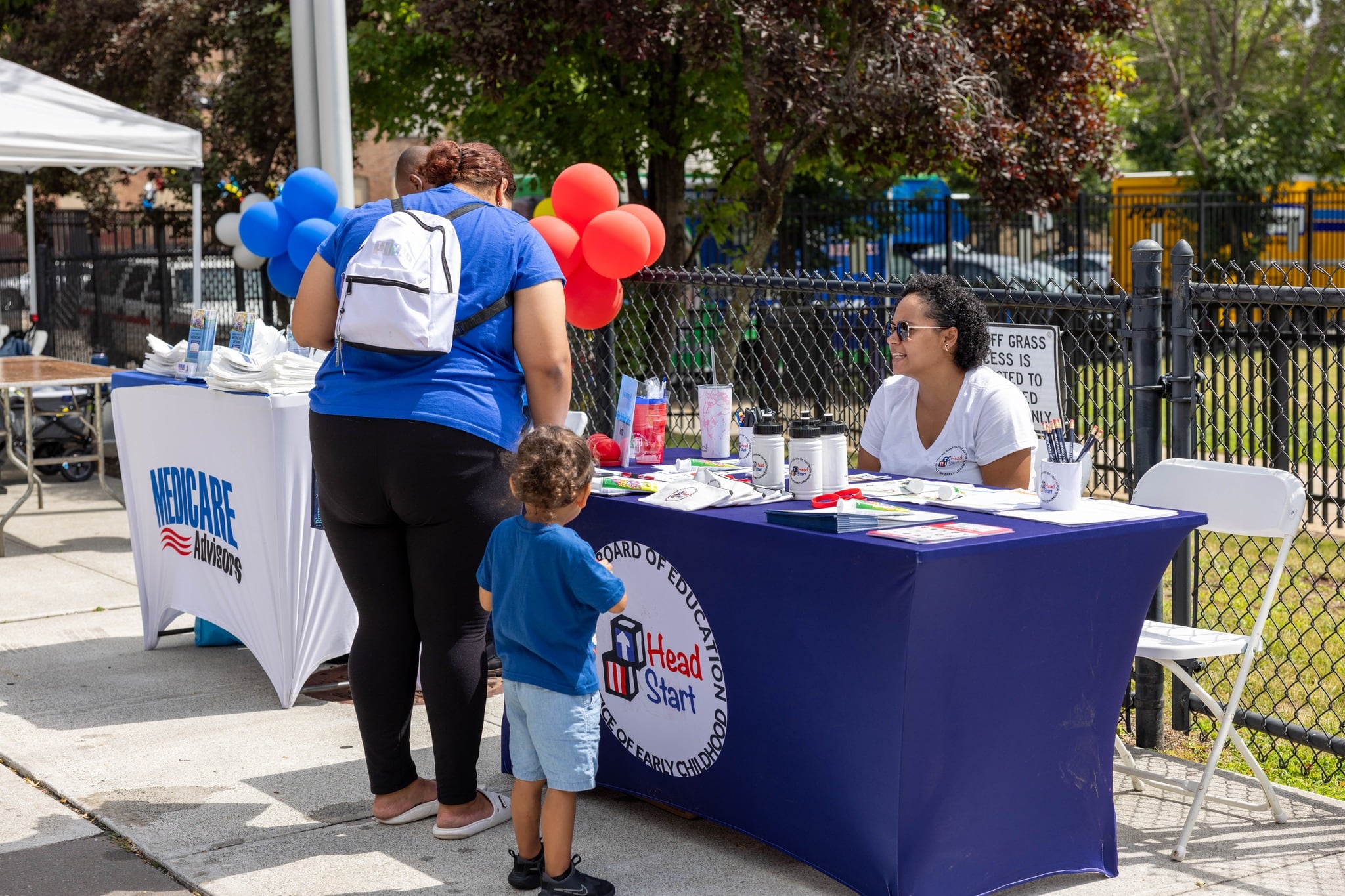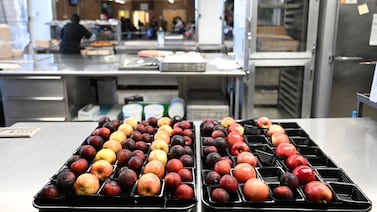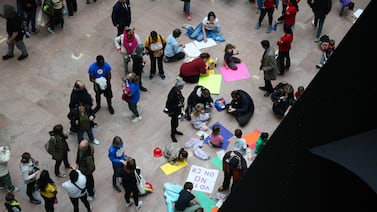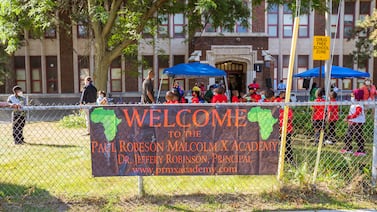The first day of school is four weeks away, but Newark’s youngest citizens were eager to get to a South Ward school Tuesday to jump in a bounce house and get free ice cream.
The carnival atmosphere at the second annual “Road Trip to Pre-K” at Belmont Runyon Elementary is part of Newark Public Schools’ ongoing effort to increase preschool enrollment and connect parents with city resources. Preschool is not mandatory in New Jersey, but Newark children are eligible to participate for free in the district’s program.
Early childhood education programs are important because “they create a foundation for children’s future success” and build skills in reading and math, said Yolonda Severe, executive director of the district’s office of early childhood education.
The district’s early childhood work begins with its “conception to cradle program,” known as the Conception to Grade 3 Consortium, to ensure Newark children are meeting development milestones and childhood needs, according to the district’s 10-year-strategic plan.
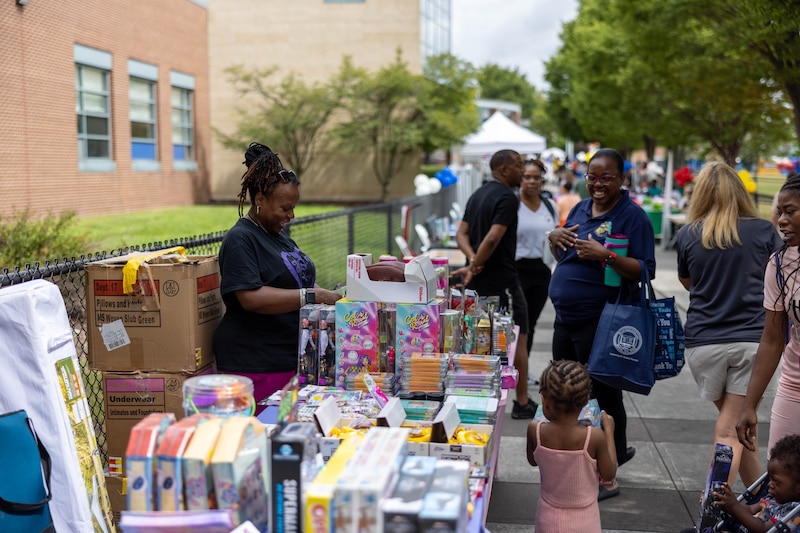
In Newark schools, preschool programs are offered to three- and four-year-old children, known as pre-K3 and pre-K4, and include classrooms with no more than 15 students, a curriculum, and certified staff, Severe added. Families can choose among three free six-hour preschool options available through the district: Head Start, a federally-funded program for low-income families; other options within city schools, and programs run by community providers and privately managed at various locations throughout Newark.
The district also offers free after-school child care at its 14 elementary schools that offer the Head Start preschool program.
This school year, roughly 6,900 students are enrolled in preschool across 40 elementary schools within the district – an increase from last year’s 6,600 students, Severe said. She added that there are “enough places in the city for all of our students.” Severe credits the enrollment increase to her team’s efforts in sharing information about the program with parents in the community, recruiting families, and the district’s marketing strategies.
The district team’s work starts by contracting with hospitals, clinics, and social service agencies to calculate the number of babies born in a specific year, according to the district’s Conception to Grade 3 Consortium. The district uses that information to gauge how many students should be enrolled in pre-K3 or pre-K4 programs for any given school year and ensure parents are aware of their preschool programs, Severe said. But before a baby is enrolled in school, district social workers work with parents to connect them with city resources such as diapers, clothes, or other support they may need.
“You’ll be surprised at the amount of parents that don’t know what resources are here within the city,” Severe said.
The district’s program is being refined, Severe said, with the goal of “building capacity within our city.” Existing pre-K locations are being expanded to offer more seats for students and “keep families in Newark,” Severe added.
Additionally, social workers visit and vet different infant and toddler programs offered throughout the city that are then recommended to parents looking for different options. Parents also can choose to enroll their child in a school or program closest to their home or work, providing a flexible option for families tailored to their needs.
Leti Carbajal attended Tuesday’s event along with her three-year-old daughter, who’s currently enrolled at Luiz Muñoz Marín for the school year. Before Tuesday, Carbajal didn’t know about the different school locations available across the city but was happy to learn more about her options and community resources.
“I really enjoyed being able to talk to the teachers and staff representatives here,” said Carbajal in Spanish.
Preschool teachers prepare students for kindergarten; this year, the district is launching its literacy initiative as part of the city’s larger plan to get Newark students reading and writing. During Tuesday’s event, the district gave away free books in different languages.
“We’re working to ensure that those kids that are transitioning from pre-K4, actually understand the curriculum going into a full-day program,” Severe said.
New Jersey started offering free pre-K in 1998 under a Supreme Court ruling specific to the Schools Development Authority districts, formerly known as Abbott districts, considered the poorest in the state.
Expanding pre-K opportunities has been a priority for Gov. Phil Murphy since taking office in 2018. Since then, the program has expanded to over 160 school districts, opening seats for more than 12,000 additional children in the state, according to Murphy’s administration. Last year, the governor allocated $120 million in grants for preschool expansion at 16 school districts.
Jessie Gómez is a reporter for Chalkbeat Newark, covering public education in the city. Contact Jessie at jgomez@chalkbeat.org.

